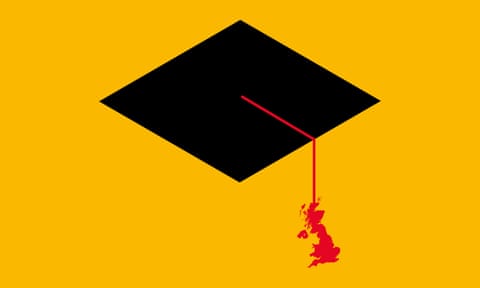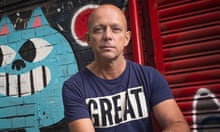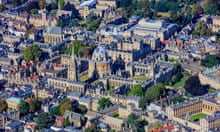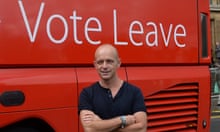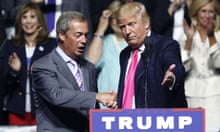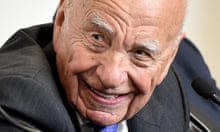Monday, 13 April 2015 was a typical day in modern British politics. An Oxford University graduate in philosophy, politics and economics (PPE), Ed Miliband, launched the Labour party’s general election manifesto. It was examined by the BBC’s political editor, Oxford PPE graduate Nick Robinson, by the BBC’s economics editor, Oxford PPE graduate Robert Peston, and by the director of the Institute for Fiscal Studies, Oxford PPE graduate Paul Johnson. It was criticised by the prime minister, Oxford PPE graduate David Cameron. It was defended by the Labour shadow chancellor, Oxford PPE graduate Ed Balls.
Elsewhere in the country, with the election three weeks away, the Liberal Democrat chief secretary to the Treasury, Oxford PPE graduate Danny Alexander, was preparing to visit Kingston and Surbiton, a vulnerable London seat held by a fellow Lib Dem minister, Oxford PPE graduate Ed Davey. In Kent, one of Ukip’s two MPs, Oxford PPE graduate Mark Reckless, was campaigning in his constituency, Rochester and Strood. Comments on the day’s developments were being posted online by Michael Crick, Oxford PPE graduate and political correspondent of Channel 4 News.
On the BBC Radio 4 website, the Financial Times statistics expert and Oxford PPE graduate Tim Harford presented his first election podcast. On BBC1, Oxford PPE graduate and Newsnight presenter Evan Davies conducted the first of a series of interviews with party leaders. In the print media, there was an election special in the Economist magazine, edited by Oxford PPE graduate Zanny Minton-Beddoes; a clutch of election articles in the political magazine Prospect, edited by Oxford PPE graduate Bronwen Maddox; an election column in the Guardian by Oxford PPE graduate Simon Jenkins; and more election coverage in the Times and the Sun, whose proprietor, Rupert Murdoch, studied PPE at Oxford.
More than any other course at any other university, more than any revered or resented private school, and in a manner probably unmatched in any other democracy, Oxford PPE pervades British political life. From the right to the left, from the centre ground to the fringes, from analysts to protagonists, consensus-seekers to revolutionary activists, environmentalists to ultra-capitalists, statists to libertarians, elitists to populists, bureaucrats to spin doctors, bullies to charmers, successive networks of PPEists have been at work at all levels of British politics – sometimes prominently, sometimes more quietly – since the degree was established 97 years ago.
“It is overwhelmingly from Oxford that the governing elite has reproduced itself, generation after generation,” writes the pre-eminent British political biographer, John Campbell, in his 2014 study of the postwar Labour reformer and SDP co‑founder Roy Jenkins, who studied PPE at the university in the 1930s. The three-year undergraduate course was then less than two decades old, but it was “already the course of choice for aspiring politicians”: the future Labour leaders Michael Foot and Hugh Gaitskell, the future prime ministers Edward Heath and Harold Wilson.
But Oxford PPE is more than a factory for politicians and the people who judge them for a living. It also gives many of these public figures a shared outlook: confident, internationalist, intellectually flexible, and above all sure that small groups of supposedly well-educated, rational people, such as themselves, can and should improve Britain and the wider world. The course has also been taken by many foreign leaders-in-the-making, among them Bill Clinton, Benazir Bhutto, Aung San Suu Kyi, and the Australian prime ministers Malcolm Fraser and Bob Hawke. An Oxford PPE degree has become a global status symbol of academic achievement and worldly potential.
The Labour peer and thinker Maurice Glasman, who studied modern history at Cambridge, says: “PPE combines the status of an elite university degree – PPE is the ultimate form of being good at school – with the stamp of a vocational course. It is perfect training for cabinet membership, and it gives you a view of life. It is a very profound cultural form.”
Yet in the new age of populism, of revolts against elites and “professional politicians”, Oxford PPE no longer fits into public life as smoothly as it once did. With corporate capitalism misfiring, mainstream politicians blundering, and much of the traditional media seemingly bewildered by the upheavals, PPE, the supplier of supposedly highly trained talent to all three fields, has lost its unquestioned authority. More than that, it has become easier to doubt whether a single university course, and its graduates, should have such influence in the first place. To its proliferating critics, PPE is not a solution to Britain’s problems; it is a cause of them.
Oxford PPE remains opaque to outsiders. It is often mentioned in the media but rarely explained. Even to know what PPE stands for is to be unusually well-informed about British education and power – often, to be part of the same Oxford milieu as the PPEists. When I asked one former party leader what he got from the degree, he said with studied insouciance: “Why would you want to write about PPE?” As the establishment often says when scrutinised: nothing to see here.
PPE is particularly associated with Labour. The degree helped shape party figures as different as Tony Benn, Tony Crosland and Peter Mandelson. In office, says Glasman, Labour has often effectively been “the governing wing of the PPE course”. Yet the same could be said of the Tories. The former cabinet ministers Michael Heseltine, Nigel Lawson, William Hague and David Willetts, and Cameron’s former Downing Street guru Steve Hilton, are all Oxford PPE graduates. Current Conservative PPEists include the health secretary Jeremy Hunt, the chancellor Philip Hammond, the work and pensions secretary Damian Green, and the justice secretary Elizabeth Truss.
“PPE thrives,” says Willetts, a former education minister who is writing a book about universities, “because a problem of English education is too much specialisation too soon, whereas PPE is much closer to the prestigious degrees for generalists available in the United States. As a PPE graduate, you end up with a broad sense of modern political history, you’ve cantered through political thought, done [philosophical] logic, wrestled with economics from monetarism to Maynard Keynes. You’ve had to get through a lot of work – 16 essays a term. That’s very useful later when you have to write a speech to a deadline.” Willetts adds: “As a minister, you do sometimes think that British political life is an endless recreation of the PPE essay crisis.”
Not everyone thinks that last-minute cramming and improvisation – Cameron’s hastily-arranged EU referendum comes to mind – is the best way to run a country. Last October, the leading Brexit campaigner and former government education adviser Dominic Cummings wrote on his influential blog: “If you are young, smart, and interested in politics, think very hard before studying PPE … It actually causes huge problems as it encourages people like Cameron and Ed Balls to … spread bad ideas with lots of confidence and bluffing.”
Other critics of PPE are blunter still. “All the Worst Remainers Read PPE at Oxford”, jeered James Delingpole on the far-right website Breitbart last year. Nigel Farage of Ukip sometimes calls over-complicated political ideas “PPE bollocks”. In the tabloids and on the internet, PPE has become synonymous with elitist, impractical, inadequate. In 2014, the columnist Nick Cohen, himself an Oxford PPE graduate, published his much-cited thoughts on the course in the conservative Spectator magazine. PPEists, he wrote, “form the largest single component of the most despised governing class since the [1832] Great Reform Act”.
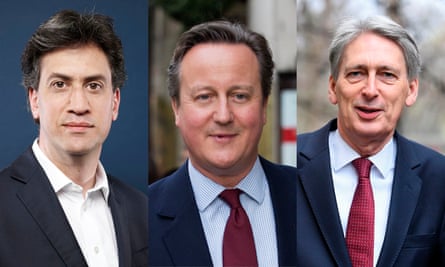
Britain is a country notoriously comfortable with educational elitism, with elaborate hierarchies and tight power networks. Yet in their often crude and illiberal way, these enemies of PPE are right to point out the strangeness of a single degree, and the mindset it often produces, remaining dominant for so long. And some of their arguments are echoed, in a more subtle way, inside Oxford PPE itself. The Labour peer Stewart Wood, a former adviser to Ed Miliband, took the degree in the 1980s, taught politics at Oxford between 1995 and 2010, and still runs occasional seminars there for PPE students. “It does still feel like a course for people who are going to run the Raj in 1936,” he says. “Vast reading every week; writing essays that synthesise and summarise – these are the skills of a civil servant in the late British empire. In the politics part of PPE, you can go three years without discussing a single contemporary public policy issue. There’s too much about the past, about political institutions, and not enough about populism or social movements.”
The very structure of the course, Wood believes, leaves many PPE graduates with “a centrist bias”. “You cover so much material that most students think, mistakenly, that the only way to do it justice is to take a centre position. And they conclude, again mistakenly, that to do well in the exams you have to avoid being an outlier. They think if you know a bit of everything, you’ll never be found out.”
Mark Littlewood, director of the free-market thinktank the Institute of Economic Affairs, who studied PPE at Oxford between 1990 and 1993, claims the degree’s political bias goes deeper. “PPE leads people towards a sort of statist role. My tutors were absolutely charming and brilliant, but I don’t think I was exposed to a single libertarian, conservative or classical liberal one. The students were overwhelmingly leftish.” A current PPE third-year says: “Nearly every academic at Oxford who teaches politics is a liberal, to some extent. They go from moderate Conservative to moderate Labour. There are lots of people on the right economically, but nearly everyone’s a social liberal.”
The rise and possible fall of Oxford PPE is part of a bigger British story: the hundred-year trajectory of a political establishment, which may now be turning decisively downward. “The crisis of PPE is part of the broader crisis of social democracy”, says William Davies, a politics lecturer at Goldsmiths College in London. “PPE is seen as part of the apparatus of the state … privilege connected to public service” – at a time when fewer and fewer voters believe such a thing is possible. Once widely regarded as “highly qualified people with good intentions”, as Davies puts it, PPE graduates are now “bogeymen”. How did a mere undergraduate degree become so important?
Oxford PPE began as something radical. In 1920, in the aftermath of the Russian Revolution and the first world war, the university was in a reforming phase. Usually glacially slow to change, Oxford had, according to its official history, become “interested in the problems raised by political unrest in Europe and Asia and high unemployment in the UK”.
An idea had been gradually crystallising for a degree that engaged with the contemporary world, rather than the medieval and classical ones which were Oxford’s usual preoccupations. Such a degree, argued economics and philosophy dons, would produce graduates better able to serve Britain and its empire. It would also open up Oxford to state-educated applicants, if it dropped the university’s traditional requirement that all students know Ancient Greek, a speciality of private schools.
At Oxford, then as now, classics was reverently called “Greats”; so the advocates of what would become PPE first called their concept “Greats without Greek”, then “Modern Greats”. “Almost always in Oxford,” says the economist Andrew Graham, who studied Oxford PPE in the 1960s, was a tutor there until 1997, and remains a prominent advocate for the degree, “the more you can make it look as if what you’re proposing has been implicit in Oxford life all along, the more you can do quite radical things”.
At first, the reformers wanted the new course to include a large science component – something Dominic Cummings and other current PPE sceptics think the degree gravely lacks – but that proposal proved one innovation too many. Instead, in November 1920, Oxford agreed to offer a PPE course, the first of its kind in the world. The university journal the Oxford Magazine, and many dons, suspected that PPE might prove a superficial or incoherent degree. Regardless, the first PPE students arrived the following autumn.
For all three years of the course, they worked on all three subjects: frantically composing essays to present at multiple weekly tutorials, taking frequent rounds of exams, and attempting to understand topics from “British Constitutional and Political History Since 1760” to the economic thought of Adam Smith and the philosophy of Aristotle. In 1970, the PPE syllabus was finally relaxed a little, allowing students to drop one subject at the end of the first year. Most do, but a high-status minority do not. And for both groups, the diffuse character of the course persists: “When I questioned one of my dons about this,” says Ricken Patel, who studied PPE at Oxford from 1996 to 1999, before co-founding the global online activist network Avaaz, “he said, ‘You are sinking deep boreholes into vast terrain. We teach you how to dig. It’s up to you to connect those boreholes.’”
From the start, for some ambitious students, Oxford PPE became a base for political adventures as much as a degree. Hugh Gaitskell arrived at the university in 1924, a public schoolboy with no strong ideological views. There he fell under the spell of GDH Cole, an intense young economics tutor and socialist – the first of many such PPE dons – who was “talked about”, Gaitskell wrote excitedly later, “as a possible leader of a British revolution”. When the General Strike broke out in 1926, Gaitskell became his driver, ferrying urgent correspondence between Cole and the union leaders in London, back and forth along the twisting country roads, racing to get back to his Oxford college before its gates closed each evening.
Thirty-four years later, when Gaitskell was Labour leader, he published a glowing memoir about his PPE years. The leftwing writer Hilary Wainwright came across it as a schoolgirl. “I was becoming radical,” she remembers, “and I thought, ‘Yes! I want to go there!’” She started the degree in 1967.
Thanks to its closeness to Westminster and the capital’s other power centres, Oxford University has always been a worldly as well as otherworldly place. But PPE made the sporadic involvement of dons and students in national politics much more systematic. This traffic has been particularly intense at one college: Balliol.
Balliol is a narrow L-shape of Victorian and older buildings, lacking in architectural fripperies, almost utilitarian compared with more aristocratic Oxford colleges. For centuries it has striven self-consciously to be more meritocratic and outward-looking: pioneering entrance by exam rather than wealth and connections, playing a central role in the creation of PPE, and seeking to populate the establishment with what it used to call “Balliol men”: able, reform-minded, impregnably sure of themselves.
Balliol has always had more PPE students and dons than other colleges – an elite within the elite – and has taught them in its own way. “Balliol PPE,” says Graham, who was a tutor there for 28 years, “has had the view that the disciplines should be interlinked, that you’ll be a better economist if you’ve studied some philosophy.”
Graham is an unshowy, seemingly unguarded character, who calls himself “a leftie” and has a Cuba guidebook on a coffee table in his modest Oxford house. But he was a key economic adviser to the Labour prime ministers Harold Wilson and James Callaghan in the turbulent 1960s and 70s, and to the Labour leader John Smith in the 1990s. (Between 2005 and 2016, Graham was also a director of the Scott Trust, which controls the Guardian.)
During the late 80s and early 90s, Graham taught the future Labour ministers Yvette Cooper, Kitty Ussher and James Purnell, now the BBC’s director of strategy. Ussher remembers: “I was having a conversation with Andrew one day in the early 90s, as we were walking across the quad, about the British rate of inflation. He was doing a lot of arm-waving. He said, ‘Inflation’s high. What can you do about it? Interest rates … you put them up!’ He was really saying, ‘This is something you can effect. Something you might do in later life.’” A decade after graduating from Balliol, Ussher was a Treasury minister.
I asked Graham how he felt when he detected political potential in a student. He said with uncharacteristic care, “If you think people are going to go and make a positive contribution to the good society …” Then he beamed: “You feel pleased!”
Edward Heath and Roy Jenkins studied PPE at Balliol. John Campbell wrote in his biography of Heath that the Balliol philosophy tutor AD Lindsay, one of the architects of PPE, was “the greatest influence in Heath’s life … after his mother”. Heath was still religiously attending Balliol events when I studied modern history there half a century later.
During the long mid-20th century heyday of social democracy, some Balliol tutors enjoyed advertising their power. According to Jenkins, the economist Thomas Balogh, who taught there from the 1930s to the 60s, “liked arranging for his tutorials to be interrupted by telephone calls from the famous”. In the 1960s, a favourite caller was the prime minister and PPEist Harold Wilson, who had hired Balogh as a Downing Street adviser.
Like Heath and many early PPEists, Wilson came from a working-class background. Like many PPEists, he came to Oxford to do a different subject and then switched. And like Heath, he found studying PPE a life-changing experience. Forever after, Wilson would tell people he had achieved the top PPE First in his year. One of his tutors said that Wilson worked so hard at Oxford, he “knew more about elections than anybody else in Europe”. Wilson went on to win more general elections than any other modern British political leader.
PPE quickly became Oxford’s fastest-growing degree, second in student numbers only to history. The future Labour and SDP politician Shirley Williams did PPE in the late 1940s. “It had a special attraction,” she says. “It was a new subject by Oxford standards. The dons were not traditional Oxford dons. And economics was becoming a more and more important part of political life, as the British economy got into difficulties.”
Yet during the postwar years, PPE gradually lost its radicalism. One of the strengths and weaknesses of Oxford is that it is not a top-down university: what is taught is largely decided by what dons want to teach. The PPE tutors acquired habits, and the syllabus “stopped evolving”, says Williams. By the late 1960s, despite the decade’s global explosion of protest politics, PPE was still focused on more conventional, sometimes insular topics. “The economics was apolitical,” Wainwright remembers, “questions of inequality were not addressed. In politics, the endless tutorials seemed so unrelated to the crises that were going on. PPE had become a technical course in how to govern.”
Not coincidentally, it became a favourite for the offspring of prominent politicians and economists. Margaret Jay, James Callaghan’s daughter, studied PPE at Oxford from 1958 to 1961. “There were six PPEists in my year at my college [Somerville],” she recalls. “One was Gaitskell’s daughter. Two were daughters of the extremely well-known economists [and Labour advisers] James Meade and Nicholas Kaldor.” More recent PPEists include Rory Campbell, son of the former Labour spin doctor Alastair Campbell, and Will Straw, son of the former Labour foreign secretary Jack Straw and head of the official Remain campaign. As PPE became part of the Oxford landscape, dominated by the university’s endless appetite for traditions, it exchanged its original meritocratic culture for something more dynastic.
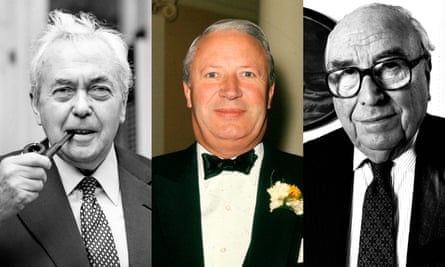
During the 1960s, a rebellion began against the degree that is the forgotten – and more thoughtful – precursor to the anti-PPE mood of today. The troublemaking leftwing writer Tariq Ali was part of it. After enduring the course from 1963 to 1966, he bet a friend that he could bring up the Vietnam war in all his final exam papers. “In economics,” Ali remembers, “one of the questions was: ‘Which is the cheapest form of subsidised transport in the world?’ And I put, ‘The American helicopter service from Saigon to the jungle, which is totally free. The only problem is that occasionally it’s a one-way trip!’”
He hoped the examiners would fail him, thus exposing the course’s conservatism. But the dons were too canny, or too liberal. They gave him a Third.
Meanwhile the wider PPE student body fragmented. Wainwright recalls, “There were two layers: the usual would-be politicians, like [the future Tory minister] Edwina Currie and [the future Labour peer] David Lipsey, who’d be at the Labour or Conservative clubs or the Union [debating society], and the political activists and critics of the PPE course.” She joined the latter. “We began a critique of the whole course, organising ourselves into groups. We wanted a more politically engaged course, that looked beneath the status quo’s surface.”
The most potent product of this ferment, part of a wider questioning of British university degrees, was a long polemic, The Poverty of PPE, published in the great revolutionary year of 1968. The title was a reference to a book by Karl Marx, whom many felt the course covered inadequately, and the final text was written by Trevor Pateman, an astringent leftwinger who had just received an outstanding First. Oxford PPE, he wrote, “gives no training in scholarship, only refining to a high degree of perfection the ability to write short dilettantish essays on the basis of very little knowledge: ideal training for the social engineer”.
Pateman’s accusation of glibness is repeated by many of today’s PPE critics. But his argument that the degree’s intellectual limits were deliberate, intended to cement and dignify the deep structure of British power, was more fundamental, and led him to urge changes to the course that were hardly populist or tabloid-friendly. He wanted PPE to incorporate sociology, anthropology, and art, to become “more fluid” and “frankly subversive”, and to “assist the radicalisation and mobilisation of political opinion outside the university”.
The PPE hierarchy responded as English establishment liberals tend to when attacked by radicals: absorbing some of the criticisms to reform their institution, while leaving its fundamentals intact. By 1971, the politics reading list included the counterculture favourites Frantz Fanon and Regis Debray, as well as a section on “Deviance, Alienation and Anomie”. But a much longer section remained on “British Political and Constitutional History since 1865”. An only modestly updated version of this course theme survives to this day.
Oxford PPE can be a stubborn, elusive enemy. At the university, it is both everywhere and nowhere. “PPEists are ubiquitous,” says the third-year student. “Nearly every student society will have PPEists on its committee. PPEists are generally quite outgoing, good at talking, good at flitting from one thing to another.” Students of more rigidly-timetabled Oxford degrees, such as the sciences, have traditionally considered PPE a bit lightweight. In a women’s toilet cubicle in one of the university libraries, there used to be graffiti above the toilet roll: “PPE degree. Please take one.”
Unlike many other Oxford courses, PPE has no faculty building. In a city full of grand academic headquarters, PPE makes do with the partial use of two relatively anonymous facilities, half a mile apart: a low glassy block for politics and economics and a plain stone one for philosophy. In a sense, Oxford PPE isn’t an institution at all, but a diaspora of students, scattered between its three subjects, in ever-shifting combinations, as the compulsory proportion of the syllabus has steadily shrunk.
“There isn’t even a senior PPE tutor,” says Andrew Graham. “All there is is a PPE committee, which meets …” he slips into untypical vagueness, “somewhere in one of the buildings”. A recent member of the committee tells me it meets twice a term, “for a couple of hours”. How would he sum up the current mood of the committee? “They feel pretty good. They feel they’ve brought PPE up to date.”
The third-year student says: “In my tutorials, we’re talking about the Brexit [court] case. We’re reading current government documents about it.” PPEists can also study “Game Theory”, or “Politics In China”, or “the Sociology of Post-Industrial Societies”. The perennial criticism of the degree as parochially British and old-fashioned can be overdone.
Yet one focus of the course has not changed since 1920. The official video for potential applicants opens with a lingering shot of the door of 10 Downing Street. “Lots of people go into politics,” emphasises a tutor in the film, “so you have a lot of resources to draw on.” Lists of famous political alumni appear in the newsletters of the politics and economics departments.
So far, there has only been one period when this flow has been interrupted. Between 1979 and 1997, fewer PPEists than usual became central political figures. Gangs of Oxford graduates continued to materialise in the cabinet; but many had studied other subjects, most commonly law, and they were joined by a new elite, also law graduates, from Cambridge. The governments of Margaret Thatcher and John Major were more hard-edged and dogmatic, and less statist, than their postwar predecessors, and so had less use for the supple, compromising, pro-Whitehall mindset of many Oxford PPEists.
Stewart Wood did the degree from 1986 to 1989, when Thatcherism was at its zenith. He remembers the course alternately “chasing the Thatcher reforms”, with hastily set essays on privatisation, or ignoring her altogether. Mark Littlewood says that when he studied PPE at Balliol in the early 1990s, “There was still a view that Thatcherism was an aberration.”
Graham, who taught Littlewood, says this is a caricature: “I remember doing lots of seminars and tutorials about Thatcherite economics!” Littlewood does concede that in philosophy he was asked to read a libertarian book – Anarchy, State, and Utopia by Robert Nozick – and as a consequence stopped being “a soggy social democrat” and became an advocate of small government. Strikingly, others who have chafed against Oxford PPE, such as Hilary Wainwright and Tariq Ali, tell similar stories of finding liberation in the margins of the course, by latching on to dissident tutors or devising their own reading lists. Graham says: “This idea that PPE is about indoctrination … the people we teach are too clever for that. And they rebel.”

But not all of them. As Thatcherism began to weaken in the late 80s and early 90s, so PPE was helping to form the next, more pragmatic generation of British politicians – and achieving a peak of influence that seems distant now. At Oxford, David Miliband and Ed Miliband were both tutored by the economist Andrew Glyn. A former Oxford PPE student himself, Glyn had for much of the 70s and 80s been a central thinker for the leftwing revolutionary group Militant, but had then acquired a grudging respect for social democracy. “Andrew was Ed’s biggest intellectual influence,” says Miliband’s former adviser Stewart Wood. In 2011, I had a conversation with Miliband about modern capitalism, and he emphasised how a steadily smaller share of profit was going to workers. Glyn had pioneered precisely that argument decades earlier.
Meanwhile at Balliol, Yvette Cooper and James Purnell were part of a confident group of PPEists, who delivered precociously fluent speeches at student gatherings, and made themselves useful to the reviving Labour party. During the long Oxford summer holidays, Purnell worked for a rising young MP called Tony Blair. With a tradition of bringing politicians to Oxford, as seminar participants or visiting speakers, PPE both demystifies politics for students and helps the parties spot talent.
David Cameron did the degree from 1985 to 1988. His politics tutor Vernon Bogdanor famously said afterwards that Cameron was “one of the ablest students I ever taught”. Although Cameron was barely politically active at Oxford, within weeks of achieving a First he obtained a job in the Conservative Research Department, a fast track for future ministers. “You could see Cameron as a classic PPEist: worldly-wise, tutored in the ways of the media, the essay-crisis prime minister,” says the documentary-maker Michael Cockerell, who has made celebrated profiles of a succession of PPEist politicians, including Cameron, Ed Miliband, Roy Jenkins and the postwar Labour reformer Barbara Castle.
Cockerell, naturally, did PPE himself. “It gives you fluency,” he says. “Just like politicians, journalists often have to be performance artists – the piece to camera outside Number 10. And PPEists come to understand how people operate in public life, what’s beneath the gloss.”
Although, given the insidery tone of much British political and economic journalism – and its failure to foresee the financial crisis, or populism, or the fates that awaited Cameron and Miliband – the media PPEists perhaps understand the political PPEists a little too well: an understanding that sometimes softens into empathy, or outright sympathy, while ignoring ways of doing politics that lack the civility of the PPE tutorial.
Maurice Glasman say: “PPEists don’t do conflict. Oxford PPE reduces everything in politics to a technical question: what’s the right policy? PPE teaches you, ‘Don’t be vile to bankers after the financial crash. What they were doing wasn’t stealing; it was down to the wrong government policy.’”
Generalisations about a form of education as baggy and enduring as PPE will never be totally accurate. Even the political careers of individual PPEists can be interpreted in wildly different ways. Was Cameron a compromising or radical Tory? It probably depends on your experience of austerity. But it can be said that the record of generations of PPEists in reforming Britain has been mixed. For every Roy Jenkins, who as home secretary helped legalise abortion and homosexuality, there has been a Danny Alexander, the former Lib Dem Treasury secretary, who unconvincingly justified the coalition’s spending cuts for five years, and then immediately lost his seat.
In some ways, Oxford PPE is still thriving. Applications for the course rose by 28% between 2007 and 2015. One successful recent applicant says: “I didn’t know that much about PPE when I was at my comprehensive. Then, during the application process, you pick up this reputation. Everybody comes to know this list of people who did PPE.”
“But when you go to the lectures, and they’re absolutely packed out – hundreds of people – you realise that only a few of them will go into frontline politics.” Instead, the influence of PPE has become more diffuse: many politically inclined graduates go on to work for charities, aid agencies, activist groups, the World Bank, the United Nations. It is an acknowledgement by the students themselves that the days of the degree simply producing a Westminster elite may finally be ending.
Nor is politics, however you define it, the only career Oxford PPE qualifies you for. “At my college, the investment banks were just hoovering them up,” says someone who taught the course between 2000 and 2009. William Davies, while critical of Oxford PPE’s political caution, sees an inconsistency in how its graduates are treated by the course’s enemies: “The ones who just scurry off into the City and make as much money as possible – you never hear about them again. They’ve joined the truly invisible elite that the public don’t understand. Meanwhile, the public-spirited PPEists get a kicking.”
Regardless, over recent decades two dozen other British universities have set up their own PPE courses: from a more politically adventurous version at Goldsmiths, in which Davies is involved, heavily informed by sociology, anthropology and cultural studies – the sort of course the 1968 Oxford radicals wanted, but never quite got – to a more maths-heavy, technocratic, four-year version at the London School of Economics. The PPE concept has also spread to dozens of universities abroad, from the United States to South Africa and the Netherlands.
But the closest equivalents of Oxford PPE are older: the Kennedy School of Government at Harvard, founded under a different name in 1936, and the Ecole Nationale d’Administration in France, founded in 1945. Like Oxford PPE, both were attempts to improve government, and both have accumulated enemies as faith in government has soured.
Shirley Williams has been a Kennedy School professor since the late 80s, and says it has “more of the grit of politics, more study from practical experience” than Oxford. Ricken Patel studied at the Kennedy School after Oxford, as many PPE graduates do, and found it more “professional”. “The curriculum was all technical skills: public speaking, strategic management – you’re not going to learn these from PPE.” But he goes on: “It had nothing like the academic rigour of PPE. And the Kennedy School took no position on what values and principles you, as a graduate, might be advancing.”
Yet Graham and other PPE veterans worry that over the last decade, unnoticed by the outside world, some of the Oxford degree’s “values and principles” have been weakening. In line with economics teaching elsewhere, “Oxford economics has become more and more mathematical,” he says. “Economics is becoming more separate from the other PPE subjects. And there’s been a reduction in tutor interest in PPE as a whole. It’s getting harder to persuade them to contribute outside their subjects.”
He thinks that Oxford PPE “will probably hold together”. A production line for mild politicians that has already survived the rise of fascism in the 1930s, the second world war, the collapse of the postwar centrist consensus, the end of the British empire, and decades of social disruption caused by the internet and post-industrialism, may well be flexible and robust enough to keep functioning while populism runs its course.
But if PPE does not survive, Oxford University, ever pragmatic, already offers an alternative of sorts. Seven years ago, after a £75m donation from the Ukrainian-American businessman and philanthropist Leonard Blavatnik, Oxford opened the Blavatnik School of Government. It occupies a purpose-built new building, a great whorl of glass and golden stone, a few hundred yards from the PPE philosophers’ dowdier premises. The Blavatnik offers courses in public policy for postgraduates, but summarises its mission more expansively: “educating leaders”. In Britain, as in most old countries, one elite tends to replace another.
